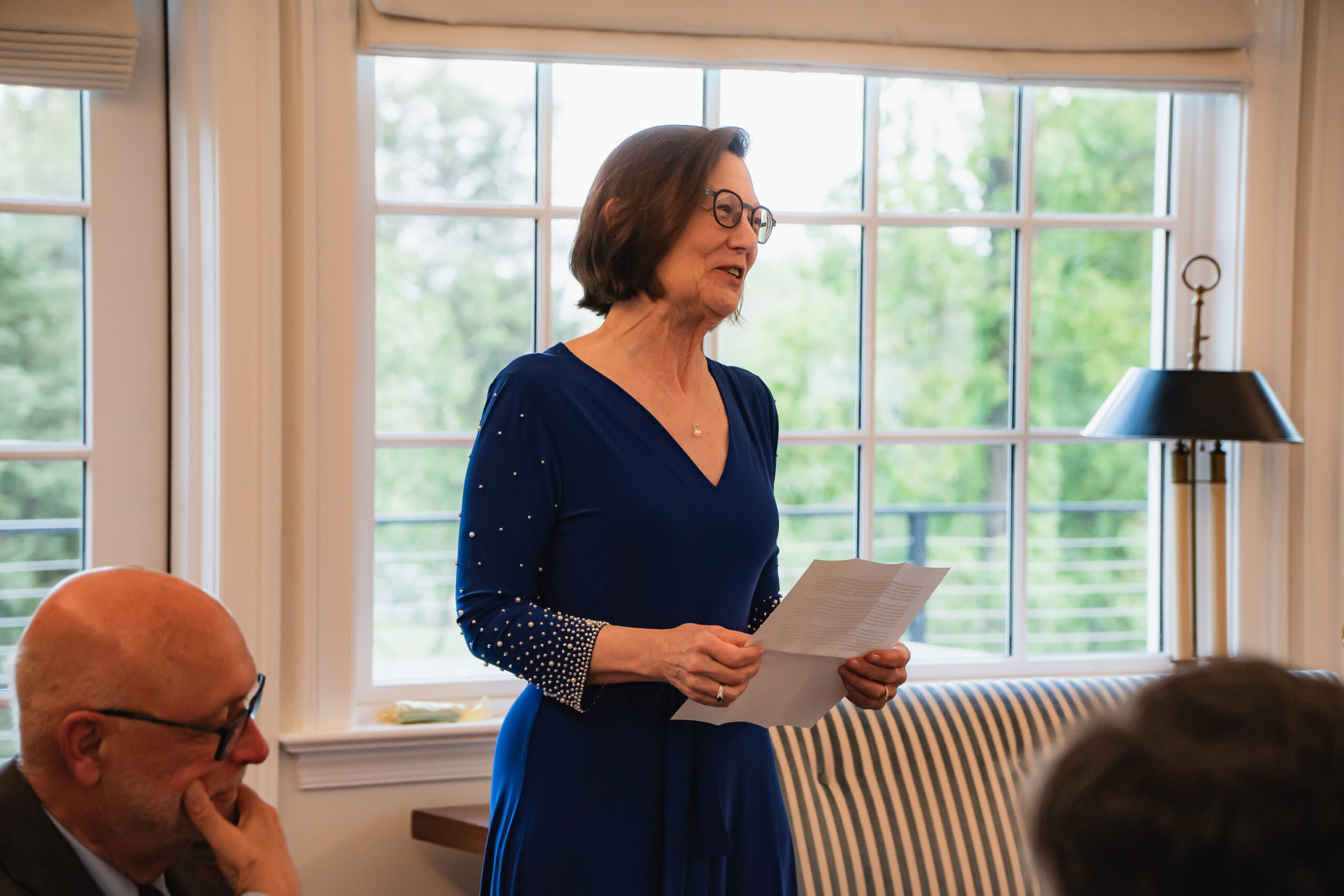
The Ministry of Mitzi Budde
Mitzi Budde, D.Min, Head Librarian and the Arthur Carl Lichtenberger Chair for Theological Research, retires after 33 years. The Rev. A. Katherine Grieb, Ph.D., ’83, reflects on the profound impact she has had on VTS.
Together we make The Episcopal Church stronger
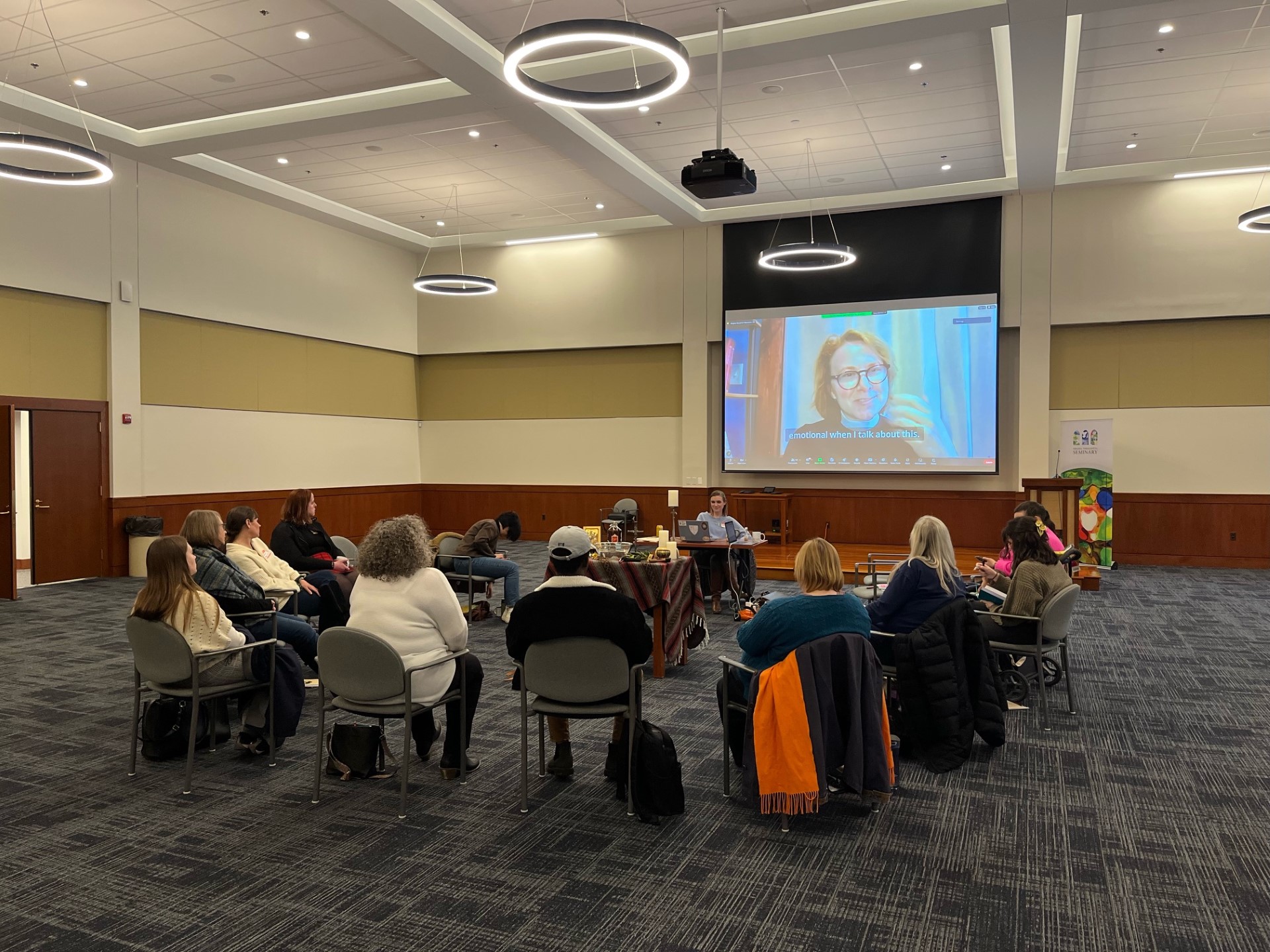
Sarah Bentley Allred ’19
I grew up in a small Episcopal church in Southwestern Virginia. Our youth Sunday School class, which included everyone from 6th to 12th grade, met in a revamped storage room and there were six of us gathered on a good week. Lots of my classmates at school identified as Christian, like me, but most of them were Baptist.
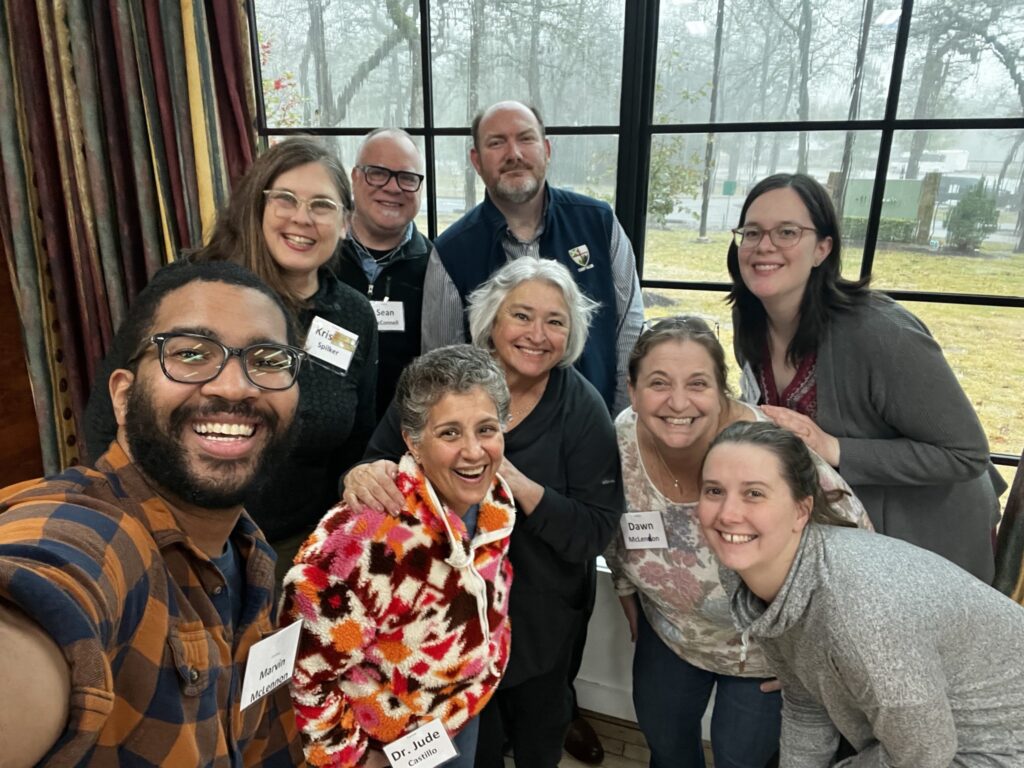
Participants at a local gathering for the hybrid Forma Conference.
In 2008, I had the opportunity to travel to San Antonio, Texas, for the tri-annual Episcopal Youth Event. I recall it being a fantastic week, but one specific memory stands out above the rest: I was high up in a very large auditorium, seated with the handful of other young people from my diocese during a worship service. I remember taking a long, slow look all the way around that room. I was surrounded by hundreds of other Episcopal young people. Everyone was standing and singing together, the energy was high, and I was overcome with an intense feeling of belonging.
Ten years later, I found myself in another large room filled with Episcopalians: the 2018 Forma Conference in Charleston, South Carolina. I had been a Forma member and working in Christian formation for a number of years, but I had previously not been able to attend the conference until I became a work-study student with Lifelong Learning at Virginia Theological Seminary.
There is no doubt that one of the most important aspects of the annual Forma Conference is networking. Many Christian formation leaders – paid and unpaid, clergy and lay – do not work with other professional formation practitioners on a weekly basis. They may be a 10 hour a week director of Christian formation in a parish with three paid staff members. They may be a solo clergy person. They may be working on a diocesan staff. At almost every level of church leadership, it is rare to work with another formation leader in the same context. So, one of the biggest benefits to participating in a the Forma Conference is meeting, reconnecting with, and exchanging ideas with people who understand the work you do.
But gathering people from across the country in one location is expensive. It is expensive for individuals, and it is expensive for Forma. For years Forma leaders have struggled with how to make such a gathering accessible to as many people as possible. How to prevent the cost of travel, lodging, and conference registration from being so high that the conference is really only accessible for full-time formation professionals with the most generous continuing education budgets.
This year, Forma took inspiration from Isaiah 43:19: “Behold, I am doing a new thing; now it springs forth, do you not perceive it? I will make a way in the wilderness and rivers in the desert.” Working with digital ministry experts from Learning Forte!, Forma leaders designed and implemented a new model of Forma Conference in January. Our goal was to offer church leaders accessible, high quality professional development without sacrificing the ability to connect with colleagues in meaningful ways.
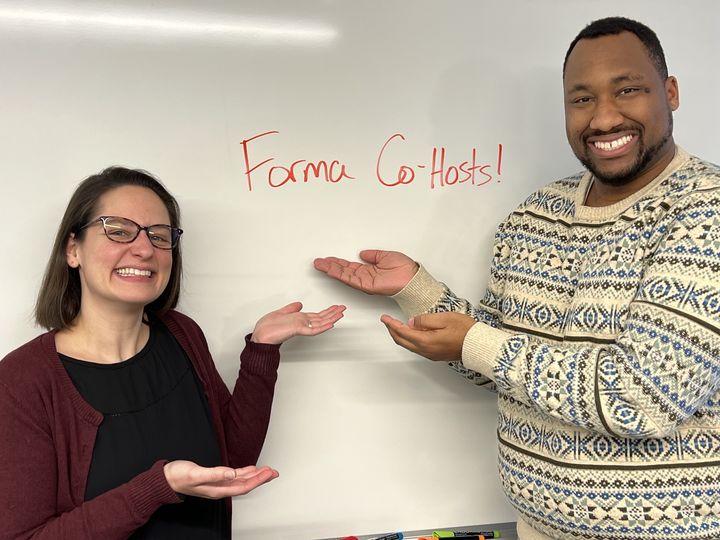
2024 Forma Conference co-hosts Sarah Bentley Allred ’19 and Wallace Benton.
The “hybrid” element of the 2024 Forma Conference was the ability to participate onsite or online. The entire conference took place live on Zoom, so participants had the option to take part in the conference online from any location. In addition, Forma offered a variety of ways to engage in the conference onsite, with a community of other participants. We coordinated two Conference Center Retreats and encouraged dioceses to host their own Local Gatherings. Approximately one-third of our 333 conference participants engaged through an onsite location and two-thirds participated online.
The “radical” element of the conference was the interactive and iterative nature of the design. The conference took place live, synchronously across all six time zones in the U.S. Both onsite and online participants were encouraged to use the chat feature in Zoom. During the conference, we shared pictures from groups and individuals participating in different locations. Our conference platform, Mighty Networks, allowed participants to respond to prompts posted by the planning team as well as direct message other conference participants. Each day, the conference hosts shared something they were celebrating from the previous day and a change they were making based on participant feedback.
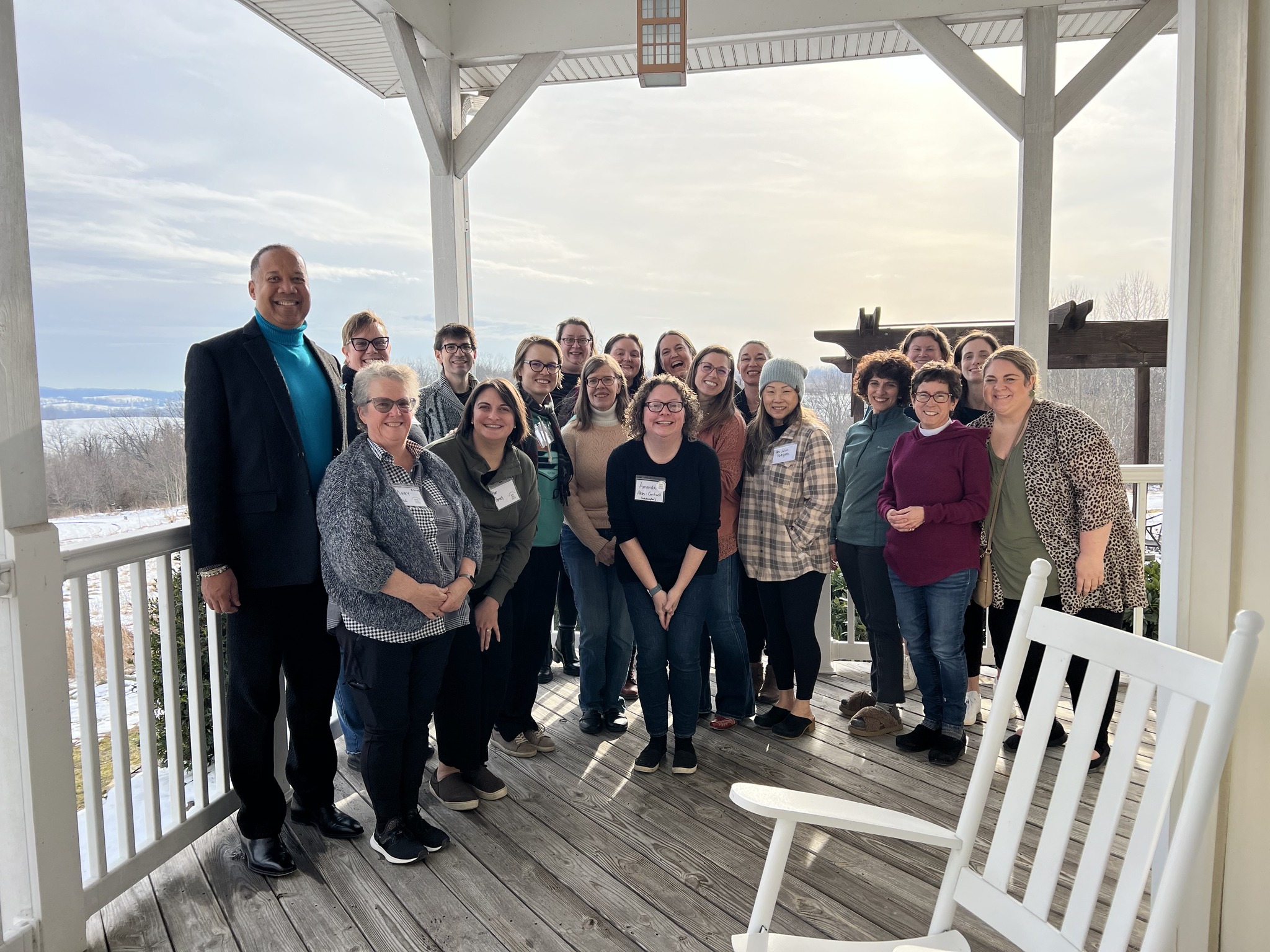
Participants at a local gathering for the hybrid Forma Conference.
In their final report, consultants at Learning Forte!, who analyzed the entire process and all feedback survey responses, said: “The radically hybrid approach to this conference was a success by all measures. The time and intention spent in the planning process made a huge difference in helping attendees have a positive and enriching experience. We learned without a doubt that it is possible to have a hybrid conference that facilitates connection and community, and provides significant learning and support for the ministry of faith formation and for the people doing that ministry.”
Forma plans to hold a second “radically hybrid” conference in January 2025. Based on participant feedback, much of our focus will be on expanding opportunities for Conference Center Retreats. As one participant wrote: “In-person fellowship and discussion can’t be replicated virtually. Being at a retreat center made it a retreat rather than a conference – which was wonderful.”
You can read the full Conference Model Report here: https://www.forma.church/2024-forma-conference/
About Forma
Forma is the network for Christian formation professionals in The Episcopal Church and beyond. In the spring of 2022, we became a ministry of Lifelong Learning at Virginia Theological Seminary. While the Annual Conference is one of our flagship offerings, we are, at heart a membership organization committed to advocacy for Christian formation. We actively work for the advancement of lifelong, holistic, Christian formation across The Episcopal Church and advocate for justice in the vocation of lay professionals. Membership benefits include regular programming, 25% off Lifelong Learning Programming, and a searchable resource library. You can learn more and join Forma here: www.forma.church/.

Mitzi Budde, D.Min, Head Librarian and the Arthur Carl Lichtenberger Chair for Theological Research, retires after 33 years. The Rev. A. Katherine Grieb, Ph.D., ’83, reflects on the profound impact she has had on VTS.
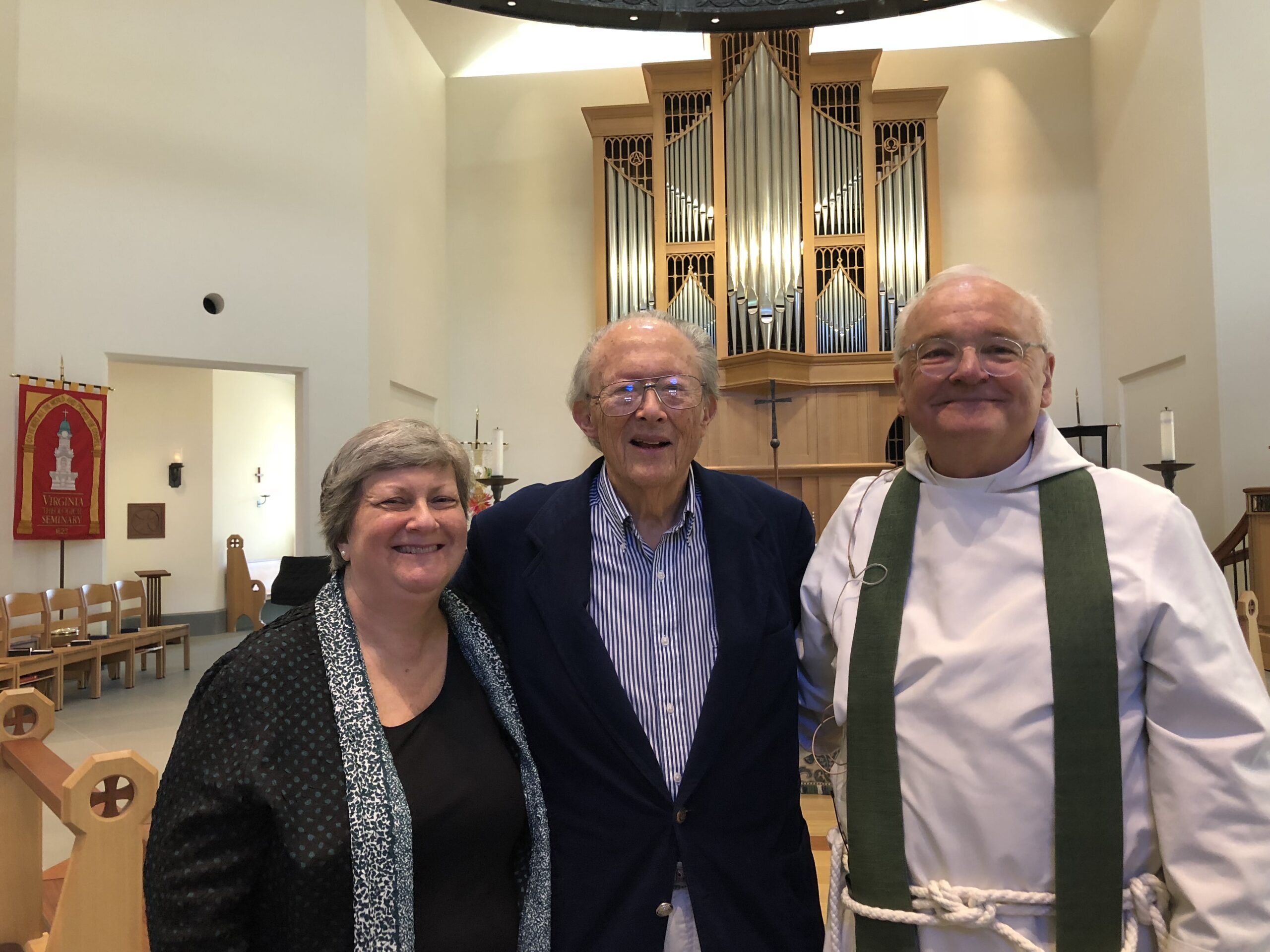
The Thomas Dix Bowers Preaching Fellowship Fund was established at Virginia Theological Seminary on May 6, 2008, by family and friends of the Rev. Dr. Thomas Dix Bowers, VTS ’56.
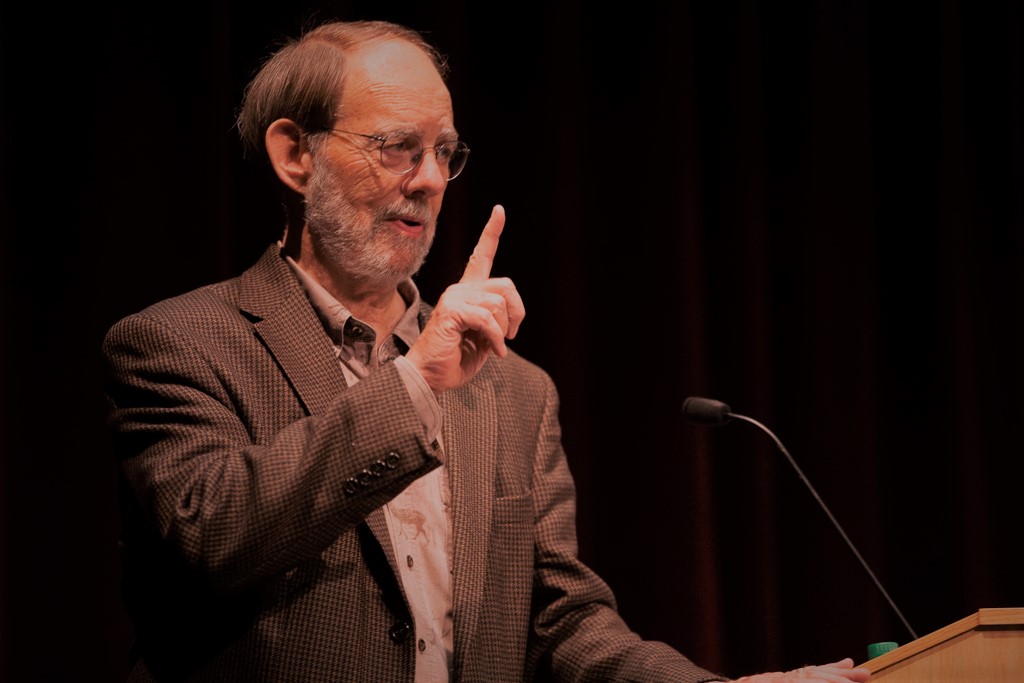
The Rev, Rode Molla, Ph.D., Assistant Professor, and the first Berryman Family Chair for Children’s Spirituality and Nurture at Virginia Theological Seminary, reflects on the legacy of the Rev. Jerome Berryman, D.Min.
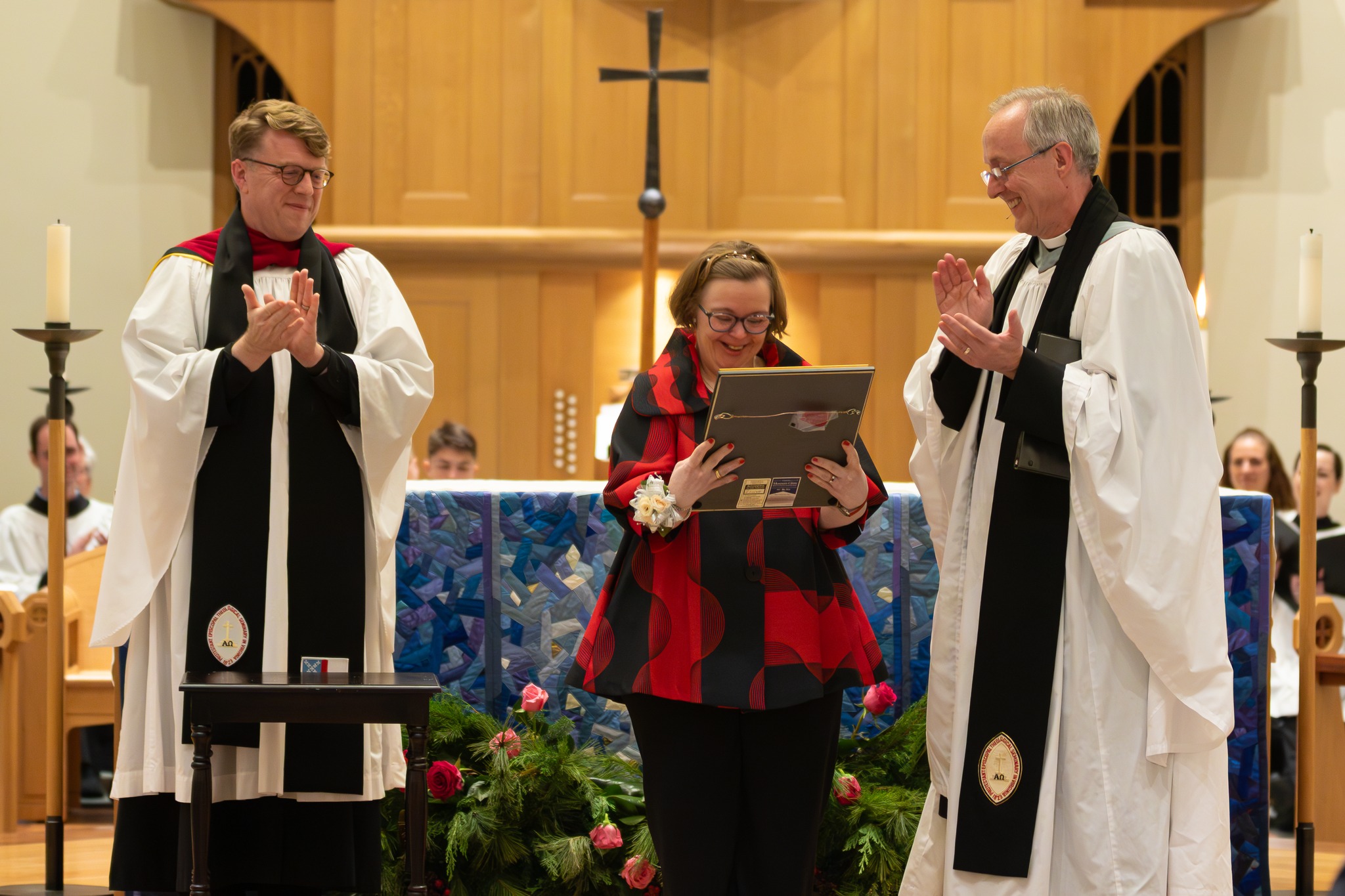
Virginia Theological Seminary was honored to confer the Dean’s Cross for Servant Leadership on Ellen Wofford Hawkins in recognition of her deep faith and ability to bring sunshine into the lives of others.